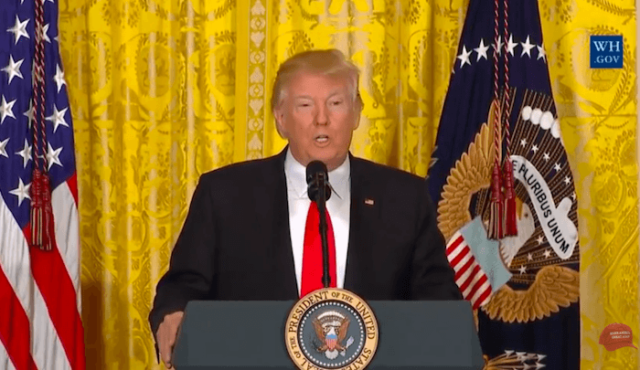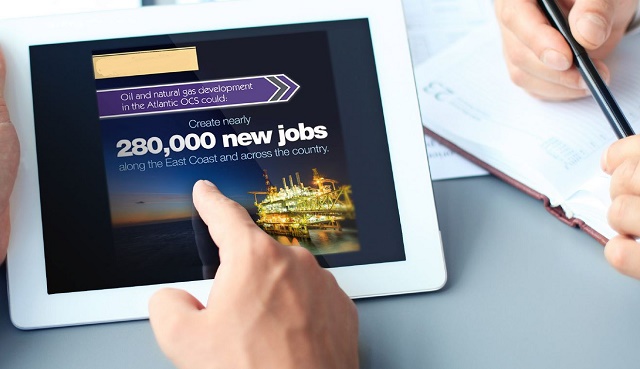President Trump opens ‘all available’ Gulf of Mexico waters to oil drilling
“Opening more federal lands and waters to oil and gas drilling is a pillar of President Trump’s plan to make the United States energy independent,” said Zinke.
And not only that: it will also cut off a great part of the funding for the global jihad, which goes from our gasoline money to oil-producing states, where all too much of it finds its way into the hands of the jihadists who have vowed to destroy the U.S. and the free world.
“Trump Opens ‘All Available’ Gulf Of Mexico Waters To Oil Drilling,” by Michael Bastasch, Daily Caller, March 7, 2017:
The Department of the Interior will include “all available” federal waters in the Gulf of Mexico that have not already been leased out for offshore oil drilling.
Interior Secretary Ryan Zinke announced Monday 73 million acres off the coast of Texas, Louisiana, Mississippi, Alabama, and Florida would be offered at a lease sale in August as part of the Interior Department’s five-year leasing plan.
“Opening more federal lands and waters to oil and gas drilling is a pillar of President Trump’s plan to make the United States energy independent,” Zinke said in a statement.
Interior finalized its current five-year offshore leasing program in January, just before Trump took office. The current plan includes 11 potential lease sales — 10 in the Gulf of Mexico and one in Alaska’s Cook Inlet.
The Obama administration, however, did not include any lease sales in most of the Arctic Ocean and all of the Atlantic Ocean. The administration initially considered offshore drilling in those areas, but decided not to on the urging of environment groups.For now, it seems like the Trump administration will stick with current policies. that could possibly change one Secretary Zinke gets all his appointees in place. The Senate confirmed Zinke last week, and it’s unclear when they will hold confirmation hearings for other high-level Interior positions.
“The Gulf is a vital part of that strategy to spur economic opportunities for industry, states, and local communities, to create jobs and home-grown energy and to reduce our dependence on foreign oil,” Zinke said….
Shortly before leaving office, former President Barack Obama locked up even more offshore areas from drilling, issuing an executive order in December making 31 canyons in the Atlantic off limits to drilling. The order took 3.8 million acres of the Atlantic ocean out of play for drillers.
In that same order, Obama designated “the vast majority of U.S. waters in the Chukchi and Beaufort Seas as indefinitely off limits to offshore oil and gas leasing.”
Environmentalists supported keeping Arctic and Atlantic waters off limits to drilling. Activists say it’s necessary to protect marine life and slow global warming.
Trump, on the other hand, promised to boost U.S. energy production through opening more federal lands and waters for exploration and eliminating regulations. That includes rolling back Obama-era policies blocking offshore drilling.
“This is exactly the kind of investment, economic development and job creation that will help put Americans back to work,” Trump said of Exxon’s investments announced Monday….
RELATED ARTICLES:
Hugh Fitzgerald: Dr. Khaled Abou El Fadl And His Orwellian Experience (Part I)



